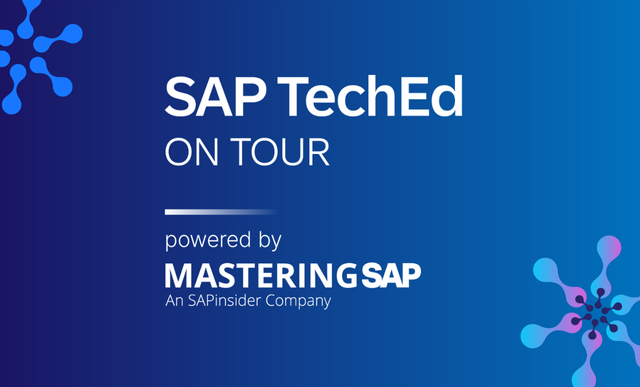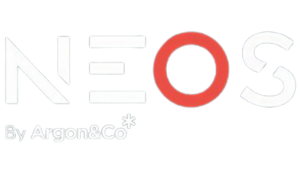SAP Contract Management
Filter By
Browse By
- SAP Analytics and AI
- SAP Application Development and Integration
- All SAP Application Development and Integration
- SAP ABAP
- SAP ABAP Development Tools
- SAP ABAP Test Cockpit
- SAP API Management
- SAP BAPI
- SAP Basis
- SAP BRF
- SAP Business Application Studio
- SAP CMS
- SAP Design Studio
- SAP Development Tools
- SAP DevOps
- SAP EAI
- SAP EDI
- SAP Extension Suite
- SAP Fiori
- SAP Fiori Elements
- SAP Integration Suite
- SAP Low Code Application Development
- SAP Low Code Automation
- SAP Netweaver
- SAP Release Management
- SAP UI5
- SAP Web Application Server
- SAP Web IDE
- SAP Business Process Management
- SAP Center of Excellence
- SAP CIO
- SAP Customer Experience
- SAP Data and Data Management
- All SAP Data and Data Management
- SAP BW
- SAP BW/4HANA
- SAP Crystal Reporting
- SAP Data Archiving
- SAP Data Center
- SAP Data Governance
- SAP Data Integration
- SAP Data Migration
- SAP Data Quality
- SAP Data Services
- SAP Data Strategy
- SAP Data Visualization
- SAP Data Warehouse Cloud
- SAP DMS
- SAP Document Control
- SAP EIM
- SAP ETL
- SAP ETL Tools
- SAP HANA
- SAP HANA Administration
- SAP HANA Deployment Infrastructure
- SAP HANA Studio
- SAP Master Data
- SAP Master Data Governance
- SAP MDM
- SAP Enterprise Architect
- SAP Enterprise Asset Management
- SAP ERP
- SAP Finance
- All SAP Finance
- SAP Accounting
- SAP AR AP
- SAP Asset Accounting
- SAP Billing Systems
- SAP BPC
- SAP BRIM
- SAP Cash Management
- SAP Central Finance
- SAP Controlling
- SAP COPA
- SAP Cost Center Accounting
- SAP e-invoicing
- SAP FICO
- SAP Finance Automation
- SAP Financial Closing Cockpit
- SAP Financial Consolidation
- SAP Financial Planning
- SAP FX Risk
- SAP General Ledger
- SAP Global Tax Management
- SAP Hyperion
- SAP Order to Cash
- SAP Payment Processing
- SAP Profitability Analysis
- SAP Rebate Management
- SAP S/4HANA Finance
- SAP Universal Journal
- SAP Governance Risk and Compliance
- SAP Human Capital Management
- SAP Intelligent Technologies
- SAP Platform and Technology
- All SAP Platform and Technology
- SAP Business Technology Platform
- SAP Cloud Connector
- SAP Cloud Integration Platform
- SAP Cloud Migration
- SAP Cloud Platform
- SAP Cloud Providers
- SAP Cloud Strategy
- SAP Container Platform
- SAP Digital Asset Management
- SAP Digital Integration Hub
- SAP Digital Signature
- SAP HANA Enterprise Cloud
- SAP HEC
- SAP Hyperscalers
- SAP Infrastructure
- SAP Messaging
- SAP Smart Forms
- SAP Quality and Testing
- SAP Security
- SAP Spend Management
- SAP Supply Chain Management
- All SAP Supply Chain Management
- SAP APO
- SAP Asset Management
- SAP Business Network
- SAP Digital Manufacturing Cloud
- SAP Digital Twin
- SAP EWM
- SAP IBP
- SAP Inventory Management
- SAP Label Printing
- SAP Logistics
- SAP Manufacturing
- SAP Manufacturing Automation
- SAP MES
- SAP MII
- SAP MM
- SAP MRO
- SAP MRP
- SAP Order Management
- SAP Plant Maintenance
- SAP PLM
- SAP Production Planning
- SAP S&OP
- SAP SD
- SAP SPM
- SAP Supply Chain Planning
- SAP Track and Trace
- SAP Transportation Management
- SAP System Administration
SAP Spend Management: Contract Management
Contract management is the process of managing partner agreements, from creation to execution, between the relevant parties. Contracts are legal documents that outline the terms and conditions mutually agreed upon for exchange of goods or services. Contracts are an important way of building long-term collaborative relationships resulting in valuable business synergies.
Contract Management is important to identify needs, implement a strategy, and then analyze the objectives. This allows for control of spending and helps organizations monitor financial transactions and impact.
4 Common Types of Contracts are:
- Lump sum
- Unit price contract
- Cost plus
- Time and materials
Five Stages of contract management are creating a first draft, negotiation of financial and legal terms, award signatures, execution, and close out and renewal. A strategic discipline is needed to manage ongoing expectations and relationships. Standardizing processes in contract management can help organizations find savings, discover new sources of supply, and mitigate risks.
SAP Spend Management: Contract Management
Contract management is the process of managing partner agreements, from creation to execution, between the relevant parties. Contracts are legal documents that outline the terms and conditions mutually agreed upon for exchange of goods or services. Contracts are an important way of building long-term collaborative relationships resulting in valuable business synergies.
Contract Management is important to identify needs, implement a strategy, and then analyze the objectives. This allows for control of spending and helps organizations monitor financial transactions and impact.
4 Common Types of Contracts are:
- Lump sum
- Unit price contract
- Cost plus
- Time and materials
Five Stages of contract management are creating a first draft, negotiation of financial and legal terms, award signatures, execution, and close out and renewal. A strategic discipline is needed to manage ongoing expectations and relationships. Standardizing processes in contract management can help organizations find savings, discover new sources of supply, and mitigate risks.
Key capabilities include:
- Indirect materials sourcing: Sourcing, process workflows, category management, integrated contract management, and integrated supplier management.
- Direct materials sourcing: Project management tools, materials dashboard, product lifecycle management, bill of materials, integrated contract, and integrated supplier management.
- Product sourcing: Automated project initiation, sourcing project management, automated negotiation processes, material masters, and supplier management collaboration.
- Contract management: Collaborative negotiations, centralized repository, process workflows, search and reporting, and electronic signature management.
- Spend analysis: Commodity classifications, supplier data, machine learning, analysis and reporting, and integrated services.
- Supplier discovery: Diverse suppliers for any need, supplier information, centralized access, facilitated collaboration, and access to supplier diversity.
- Free sourcing software: Two user licenses, RFx publishing, rapid communications, dashboard reporting, and broad stream collaboration.
Some vendor partners that offer contract management include Dassian, DocuSign, Icertis, and SAP.
Key Considerations for SAPinsiders:
- Contract Lifecycle Management: Comparing Ariba and SAP: Mitigate financial risk that might arise due to noncompliant
- The Case for Contract Management: Why You Should Get Started Today: Discover best practices to outsource with success via contract-management.
- SAP CRM Intellectual Property Management: Effectively Manage Intellectual Property Sales with License Contracts: Read the article to learn more about license sales contracts used to sell intellectual property rights.
964 results
-

Contract Intelligence as a Competitive Differentiator
Published: 01/April/2022
Reading time: 6 mins
As technology around us has evolved exponentially, so have solutions that help organizations leverage technology as an enabler. One such category of solutions is contract lifecycle management solutions. Since the early days of manually drafting contracts that went through several review cycles, contract lifecycle management has come a long way, thanks to technology. This article…
-

How to Comply with IFRS 15 Regulations Using SAP Revenue Accounting and Reporting 1.2
Published: 22/May/2017
Reading time: 29 mins
Learn how to set up SAP Revenue Accounting and Reporting 1.2 in SAP ERP Central Component (ECC) 6.0 to comply with the new accounting standard regulation IFRS 15. The new regulation was jointly released by two leading accounting standard bodies: the International Accounting Standards Board (IASB) and the Financial Accounting Standards Board (FASB). Key Concept...…
-

Automate FI Postings by Integration with RE-FX Through Account Determination
Published: 12/March/2009
Reading time: 16 mins
Account determination in RE-FX improves productivity by automating customer invoicing and increasing the flow of information by executing a periodic posting run. See how to automate your FI postings by integrating FI and Flexible Real Estate Management (RE-FX) through automatic account determination. Key Concept Flexible Real Estate Management (RE-FX) is used for management of real...…
-
-

SAP CRM Intellectual Property Management: Effectively Manage Intellectual Property Sales with License Sales Contracts
Published: 26/October/2011
Reading time: 13 mins
Learn about the unique characteristics of license sales contracts, which are used to sell intellectual property rights in SAP CRM-Intellectual Property Management. Key Concept SAP CRM-Intellectual Property Management’s (IPM) license sales contract helps companies manage the sale of intellectual property (IP) rights by capturing contractual information such as the rights being sold, fees being charged...…
-

Maintain Compliance with the IFRS 15 Revenue Standard with SAP Revenue Accounting and Reporting
Published: 12/July/2016
Reading time: 14 mins
Learn about the changes in the International Accounting Standard Board (IASB) and Financial Accounting Standard Board (FASB)’s International Financial Reporting Standards (IFRS) accounting standard, IFRS 15. From a functional perspective, review the prominent processes and the data accounting flow for SAP Revenue Accounting and Reporting. Discover the capabilities of SAP Revenue Accounting and Reporting and...…
-

Give Your Procure-to-Pay the Next Power of Analytics with SAP Spend Performance Management Solutions
Published: 27/May/2014
Reading time: 21 mins
BIFinancialsGet an overview of the SAP Spend Performance Management solution and learn about the business case for implementing it. Learn the details about the features of Spend Performance Management. Using a case study example, gain an understanding of Spend Performance Management implementations and lessons learned. Key Concept SAP Spend Performance Management is an SAP BusinessObjects...…
-

Use Down Payment Chain Functionality to Improve Efficiency of Tracking Contractual Events
Published: 13/July/2011
Reading time: 18 mins
Track contractual events that occur in long-term projects with the down payment chain functionality in FI. Walk through the end-to-end configuration of the functionality supported by process steps with an example. Key Concept SAP’s down payment chains functionality groups all the accounting documents that belong to one contract. It also allows you to structure the...…
-
-

2025 Retail Technology Trends & Challenges
Reading time: 11 mins
A survey conducted by Rizing revealed that top retail executives in North America face challenges such as supply chain disruptions, economic uncertainty, and insufficient ERP integration, while also recognizing the need for investments in technology, particularly in inventory management, AI adoption, and unified commerce strategies to enhance operational resilience by 2025.
-

Achieve Budgetary Control of Unplanned Service Procurement and Projects Using Value Limit Strategies
Published: 30/October/2017
Reading time: 21 mins
Learn how to use different value limit strategies to control spending on unplanned service procurement and budgetary allocation for projects. Key Concept Value limit is a functionality within purchase requisition and purchase order (PO) documents that can be applied to set a benchmark value for a project or service procurement if the cost and possibly...…
-

Manage Rental Contracts with Help from Sales and Distribution Functionality
Published: 07/December/2009
Reading time: 13 mins
Learn the necessary sales and distribution (SD) configuration to create and manage rental contracts in your SAP ERP solution. Key Concept A periodic billing plan type is meant to be used with contracts and customer agreements that require predefined periodic invoicing. For example, an agreement might call for the customer to be billed on the...…
Featured Experts
-

Ram Ranganathan
Deloitte
Become a Member
Unlimited access to thousands of resources for SAP-specific expertise that can only be found here.
Upcoming Events
-

Mastering SAP Collaborate an SAP TechEd on Tour event
November 12 - 14, 2025
Sydney, New South Wales
Australia
View Event
Related Vendors
Your request has been successfully sent
